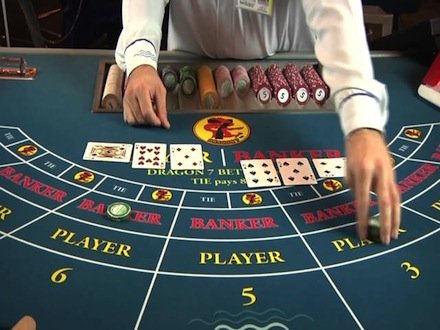Physical Address
304 North Cardinal St.
Dorchester Center, MA 02124

Take a look at our beginner’s guide to Singapore Baccarat Players if you’re unfamiliar with the game.
Baccarat is largely a game of luck, like many other gambling games in Singapore, and nothing you can do will totally change this or ensure that you will always win. However, you can increase your chances if you thoroughly comprehend the guidelines, chances, and probabilities of how the game will play out.
Understanding Singapore Baccarat’s rules in their entirety is vitally necessary before you can start putting up a winning strategy. Fortunately, the rules of baccarat are simple and may be summed up as follows:
Both betting on the Banker and the Player have benefits and drawbacks in the game of baccarat. Betting on the Banker has the benefit that, according to Singapore’s Baccarat games’ statistics, the Banker hand will win just a little bit more often than the Player’s hand. Considering that the cards are handed at random, this may seem confusing, but it has to do with the rules that govern whether a third card is dealt.
Despite being quite complex, the third card rule’s explanation can be found in the casino software. The regulation pertaining to the Banker and the rule pertaining to the Player are not the same. The Banker’s rule takes into account the Banker’s initial cards as well as whether or not the Player has a third card and, if so, what kind of card it is. The Banker has a modest statistical edge as a result of all of this, which suggests that over the long term, the Banker will probably win more hands than the Player does.
There are benefits to betting on the Player, though. The primary one is that you get to keep all of your winnings if you win. For example, if you wager RM10 on the Player and win, you’ll get your money back plus an additional RM10. However, in the majority of Singapore’s Baccarat games, if you bet on the Banker and win, you will be required to pay the house a 5% commission on your earnings. Therefore, you would only receive RM9.5 for your win. As a result, a bet that wins on the Player will pay out more than a bet that wins on the Banker.
There are clear benefits and drawbacks to betting on a Tie, just like with Player and Banker bets. The significantly higher payout is the main benefit. For a tie, most Baccarat games pay out 8 to 1. In other words, if you wager RM10 on a tie and win, you will get your money back plus an additional RM80.
Less than 10% of Singapore’s Baccarat hands, according to statistics, will end in a tie, which is the Tie bet’s main disadvantage. In other words, if you bet on a tie for 100 hands, statistically speaking, you will lose 90% and gain only 10%. If you stick with the RM10 bets, you would lose RM900 and win RM800, leaving you with a loss of RM100 for the session.
Of fact, things rarely go as smoothly in practice as the numbers would indicate. The same 100 hands may be played, and you could take home 90 Tie bets. The Tie bet is frequently placed, and many players win. The Tie hand will lose roughly 90% of the time in the long run, according to the statistics. As a result, betting on the Tie exclusively is not a good idea, but if you manage your bankroll sensibly, you can occasionally place a wager on it.





